IMO Adopts Tougher Resolution to Tackle Illicit 'Shadow' Fleet
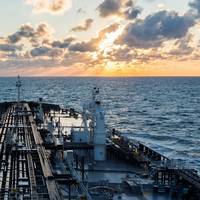
The United Nations' shipping agency on Wednesday adopted a resolution targeting illicit shipping practices from the so-called unregulated "shadow fleet" in an effort to clamp down on unsafe activities at sea.There are hundreds of ageing oil tankers that form part of a parallel fleet of vessels transporting oil including for Russia, which has been hit by Western sanctions but also the enforcement of Group of Seven regulation that caps the price of Moscow's oil exports at $60 with penalties imposed on those that ship above that price.Iran, which has also been struggling with separate sanctions i
Pakistan Becomes Party to Hong Kong Convention
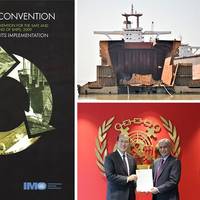
Pakistan has become a Party to the Hong Kong International Convention for the Safe and Environmentally Sound Recycling of Ships, 2009 (Hong Kong Convention).Vice Admiral (Retd.) Iftikhar Ahmad Rao, Maritime Minister and Special Assistant to the Prime Minister (SAPM) on Maritime Affairs, Pakistan, deposited the instrument of accession with IMO Secretary-General Kitack Lim at IMO Headquarters in London on November 30.The deposit follows an IMO-run national seminar in Karachi to…
Pakistan Takes Next Step Towards Hong Kong Convention Ratification
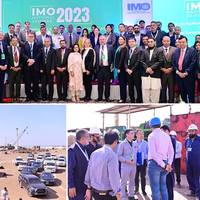
Pakistan is a step closer to becoming a party to the Hong Kong International Convention for the Safe and Environmentally Sound Recycling of Ships, 2009 (Hong Kong Convention).Following an IMO-run national seminar in Karachi, Pakistan, (November 13-15) to support the country’s implementation of the Convention and related guidelines, the Pakistan (Federal) Cabinet completed the processes needed to prepare the instrument of accession to the convention.The seminar was hosted by Pakistan's Ministry of Maritime Affairs.
Call for Stricter Regulation of Scrubber Washwater
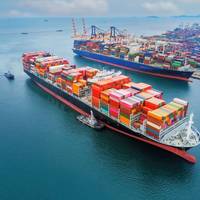
The combined emissions of metals and other environmentally hazardous substances from ships is putting the marine environment at risk according to a new study from Chalmers University of Technology, Sweden.The researchers calculated the contaminant load from these emissions into the marine environment in four ports, and found that water discharged from ships’ scrubbers accounts for most of the contaminants.“The results speak for themselves. Stricter regulation of discharge water from scrubbers is crucial to reduce the deterioration of the marine environment…
Abandoned Seafarers Repatriated After Five Months on Livestock Carrier
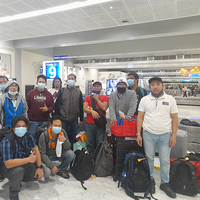
Thirteen Filipino seafarers, the last of 43 abandoned on two livestock carriers, have made it home after more than five months onboard the Yangtze Harmony.The International Transport Workers’ Federation (ITF) intervened after the ship’s owners abandoned the vessel and its crew in October 2022. At that time, the Singapore Sheriff court seized the Yangtze Harmony on behalf of Glander International Bunkering over an unpaid fuel bill. That began a legal process to sell the ship and pay off its debts…
War in Ukraine Raises Global Shipping Costs, Stifles Trade -UNCTAD
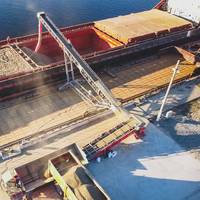
The war in the Ukraine is stifling trade and logistics of the country and the Black Sea region, increasing global vessel demand and the cost of shipping around the world, the UN Conference on Trade and Development (UNCTAD) said. Container shipping and global value chains have been disrupted and many countries have had to look further afield for suppliers of oil, gas and grain.In a report entitled “Maritime trade disrupted: The war in Ukraine and its effects on maritime trade logistics” published on 28 June 28…
New Guidance Aims to Curb Maritime Pilot Transfer Fatalities
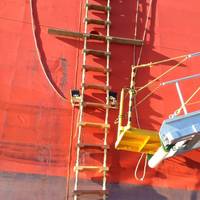
A guide to maritime pilot transfer safety has been updated amid industry concerns about poorly rigged ladders causing severe injuries or fatalities.The ‘Shipping Industry Guidance on Pilot Transfer Arrangements’, produced by the International Chamber of Shipping (ICS) in partnership with the International Maritime Pilots’ Association (IMPA), features a new section with the International Maritime Organization (IMO)’s guidance on combination embarkation platform arrangements. Provisions for a ‘trapdoor arrangement’ in combination ladders…
New Quarantine Program Aims to Combat Shipping Industry Crew Crunch
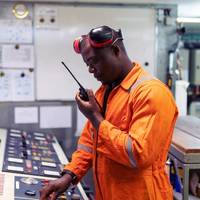
The maritime industry is establishing its own approved international network of quarantine facilities to ensure safe crew changes as the Omicron variant spurs governments to close their borders to seafarers needing to leave and join ships.The Crew Enhanced Quarantine International Program (#CrewEQUIP) is a partnership between the International Maritime Employers’ Council (IMEC); the International Chamber of Shipping (ICS); and the International Transport Workers’ Federation (ITF)…
Profiles in Training: Dr. Michael Ekow MANUEL, Professor, World Maritime University

The global seafarers crisis takes center stage at the World Maritime University (WMU), as Dr. Michael Ekow Manuel discusses the importance of seafarers, seafarer training and the MarTID 2021 survey.While many maritime professionals have the theoretical ‘salt in their veins’, a career at sea seemingly predestined by family ties and/or geographic proximity, that is not the case for Dr. Michael Manuel, Professor, WMU. Hailing from Ghana, Dr. Manuel from a young age had a fascination with vehicles and everything that moves, but ships were not his focus, rather airplanes.
VIDEO: MarTID Survey Looks at Pandemic’s Impact on Seafarer Training
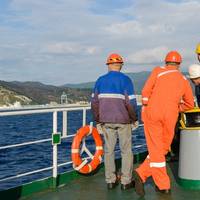
2020 presented a monumental challenge for many industries and workers, particularly seafarers, as COVID-19 effectively left hundreds of thousands of seafarers stranded at sea, unable to disembark and partake in crew changes due to onerous restrictions by the majority of port states. The challenges continue into 2021, and while eventually the situation will pass, COVID-19 will leave an indelible mark on the way in which seafarers are trained.For the fourth year, the MarTID survey of examines maritime training practices and trends.
US FMC Commissioners Urge Vaccinations for Maritime Workers
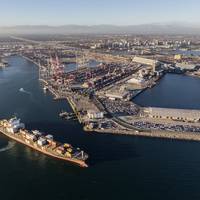
This week, U.S. Federal Maritime Commissioners Daniel B. Maffei and Carl W. Bentzel sent letters to the Governors of major port states urging them to prioritize the vaccination of the maritime workforce to protect the nation’s supply chain.Letters were sent to the Governors of Alabama, California, Florida, Georgia, Louisiana, Maryland, New York, New Jersey, South Carolina, Texas and Washington following an earlier letter to the Biden administration encouraging the prioritization of maritime workers for access to vaccinations…
Top Maritime Trends 2020: Owners and Operators can Do the Right Thing for Seafarers
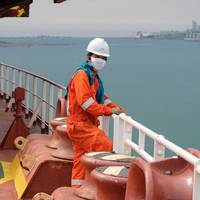
Due to a confluence of factors, COVID-19 has adversely impacted merchant mariners more than virtually any other profession. The merchant marine is an international profession from a wide variety of countries, so there is no one nation standing up to represent them.The ships on which they sail are registered in numerous nations, heavily weighted toward small countries with limited influence on the world stage. The ports at which the vessels call tend to be more concerned about the health of the local community than the welfare of seafarers…
Australia Sets Return to Pre-COVID Seafarer Contracts
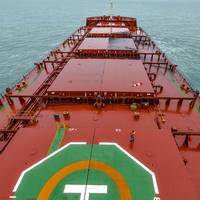
Australian maritime officials have set an end date for interim arrangements permitting seafarers to serve longer than 11 months aboard ships amid the ongoing COVID-19 pandemic.Under the International Labor Organization’s Maritime Labor Convention (MLC) the normal maximum period that a seafarer can serve aboard a vessel without leave is 11 months.Australian Maritime Safety Authority (AMSA) general manager of operations, Allan Schwartz, said that while flexibility on the part of regulators was necessary when the COVID-19 pandemic began…
Innovation and Collaboration Key to Addressing In-water Cleaning Issues
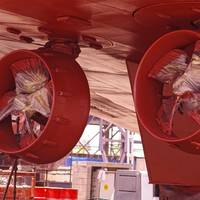
Industry stakeholders at PortPIC stressed the importance of more innovation, collaboration and aligned initiatives to shape sustainable solutions for in-water cleaning.This was the main message from the inaugural In-Port Inspection & Cleaning Conference (PortPIC) held last week, organized by Jotun and DNV GL.In his opening address, Geir Axel Oftedahl, business development director, Jotun Marine Coatings raised the issue of biofouling and emphasized, “There’s an increasing focus…
Opinion: Shame on Port States for the Treatment of Seafarers
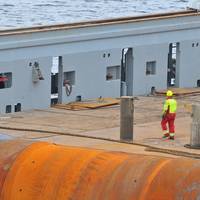
Port states benefit greatly from the vessels that call at their ports, loading and unloading cargoes with great efficiency and speed. The items manufactured in those states and sold overseas keep many of their citizens gainfully employed. The items imported supply stock for the stores of their nation and provide goods for their citizens. The physical ports utilized by the vessels are employment magnets, attracting a diverse array of industries.Yet, when the COVID-19 pandemic struck, those port states took swift actions against the very vessels that keep their economies in operation.
Autonomy on Trial
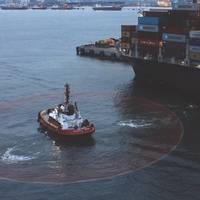
When discussing the arrival of autonomous workboats, many – especially those developing the technologies that enable them – say it’s is not a matter of if, but when. In fact, autonomous harbor tugs are already being put to the test in Singapore, where authorities hope to establish the technological infrastructure to enable fully autonomous ship operations. In the U.S., an autonomous vessel was shown to be able to respond to marine oil spills.But is autonomy really the future?
ABS Publishes Marine Autonomy Guidance
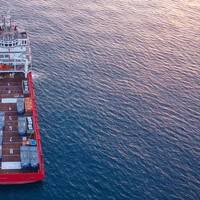
Classification society ABS published guidance on the journey to autonomy, including a goal-based framework for autonomous requirements. The ABS Advisory on Autonomous Functionality addresses the application of autonomous functions in the maritime and offshore industries, the infrastructure enabling these functions and key regulatory developments.“Autonomous technology is gradually reshaping the maritime industry, bringing benefits such as increased operational efficiency, human error reduction, emission reduction, increased safety, and operational cost reduction.
Want to Cut Emissions? SLOW DOWN
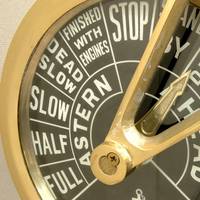
Merchant ships traditionally operate in the open sea at or near full speed. This is hard on the engine, hard on the ship and hard on the crew. Slowing down reduces wear on the engine, improves fuel efficiency, reduces harmful air emissions and improves safety by providing the bridge personnel additional time to evaluate developing situations. Some marine engines, though, are designed to operate at near full load. Thus, for these engines, slow steaming creates its own set of problems – not insurmountable…
German Shipping to Use LSFO
The vast majority of ships in the German fleet will run on the new sulfur-reduced fuel (Low Sulfur Fuel Oil, LSFO) from 1 January at the latest. This is one of the findings of a survey conducted by the German Shipowners’ Association (Verband Deutscher Reeder, VDR) among its member companies.While the body of data obtained through the survey is not representative of the German shipping industry as a whole, it does reflect views that can certainly be extrapolated since the respondents include shipping companies from every sector of the German shipping industry. The survey was conducted against the backdrop of one of the biggest changes occurring in the shipping sector…
46 Countries Support Torremolinos Declaration
The Cook Islands and Sao Tome and Principe have become the latest States to become Party to the Cape Town Agreement on fishing vessel safety.These small nations deposited their instruments of accession during the Torremolinos Ministerial Conference on Fishing Vessel Safety and Illegal, Unreported and Unregulated (IUU) Fishing (21-23 October).At the same time, they joined 44 other countries (46 in total) signing the Torremolinos Declaration, a non-legally binding political instrument.By signing the Declaration, the 46 States publicly indicate their determination to ensure the Cape Town Agreement reaches entry into force criteria by the tenth anniversary of its adoption (11 October 2022).
Maritime Recordkeeping is Serious Business
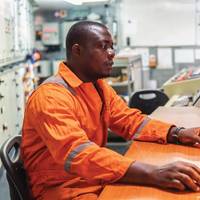
In addition to fuel, modern ships also run on paper or their electronic equivalent. Vessels are required to keep written or electronic records of many things – and the list is growing.There is the traditional Ship’s Log, which records the vessel’s position, course, speed, weather, and unusual events to name a few. The Oil Record Book (ORB) has been around for a long time and tracks all movement of oil throughout the vessel, including its loading, consumption, and discharge (generally via the oily water separator and overboard discharge piping).
China Fishing Safety Workshop Mulls Treaty Ratification
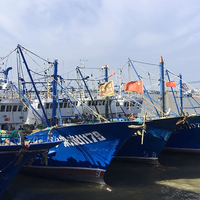
National workshop discussed China's potential ratification and implementation of fisheries-related conventions, including IMO's 2012 Cape Town Agreement (CTA), aimed at improving safety standards on fishing vessels, and the 1995 Standards on Training, Certification and Watchkeeping for Fishing Vessel Personnel (STCW-F).Fisheries-related conventions are key tools used by flag, coastal and port States to effectively monitor and control fishing vessels and minimize the risk of illegal…
Fishing Vessel Safety Workshop in China
Fisheries-related conventions are key tools used by flag, coastal and port States to effectively monitor and control fishing vessels and minimise the risk of illegal, unreported and unregulated (IUU) fishing activities, by enhancing transparency, traceability and governance.This was the focus of a national workshop in Shanghai, China (29-30 July), organized by the Shanghai Ocean University and the Bureau of Fisheries of the Ministry of Agriculture and Rural Affairs of the People's Republic of China, with input from International Maritime Organization (IMO), the UN Food and Agriculture Organization (FAO), The Pew Charitable Trusts and the IMO Number Scheme manager (IHS Markit).Participants discussed China's potential ratification and implementation of fisheries-related conventions…







